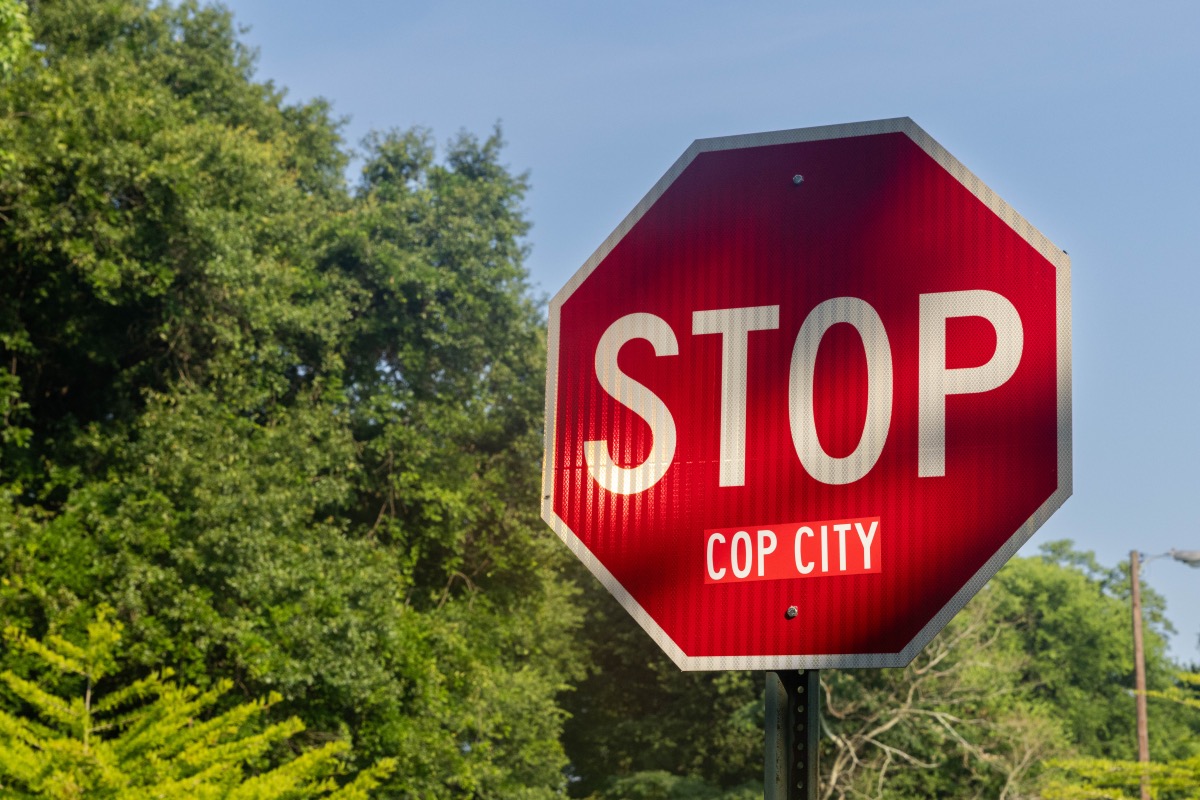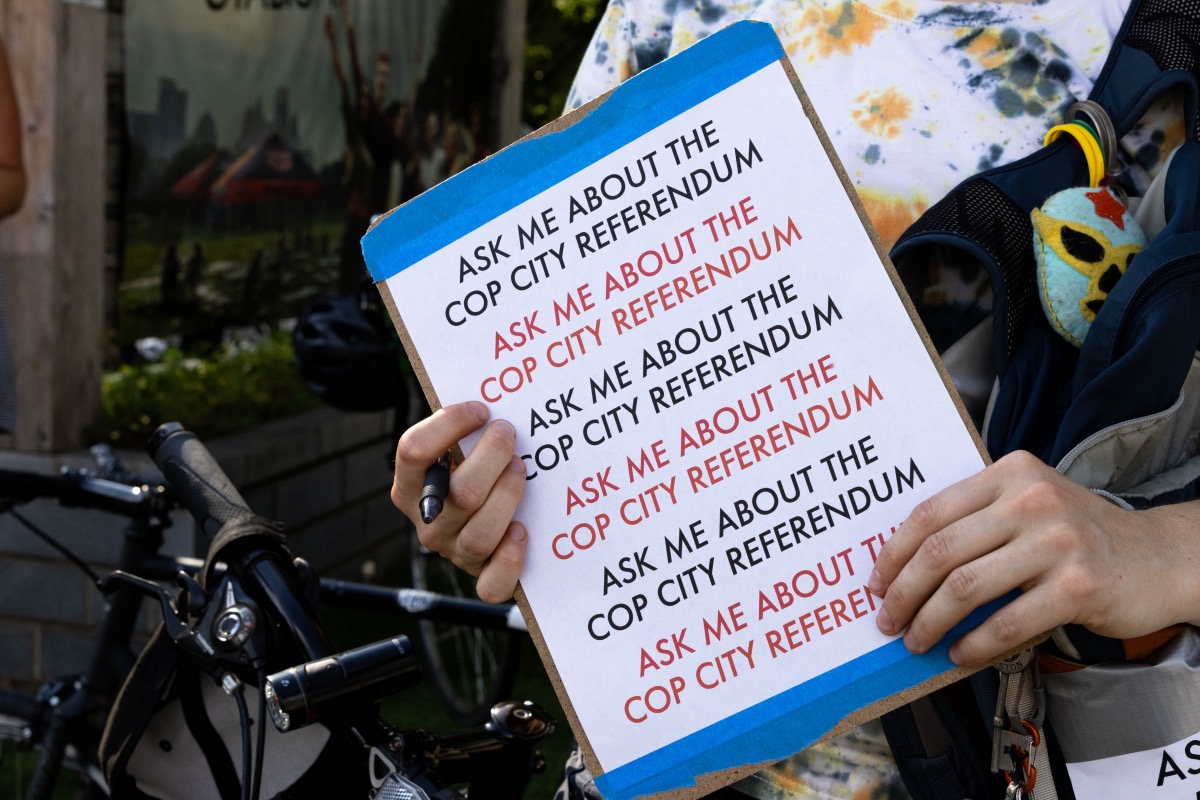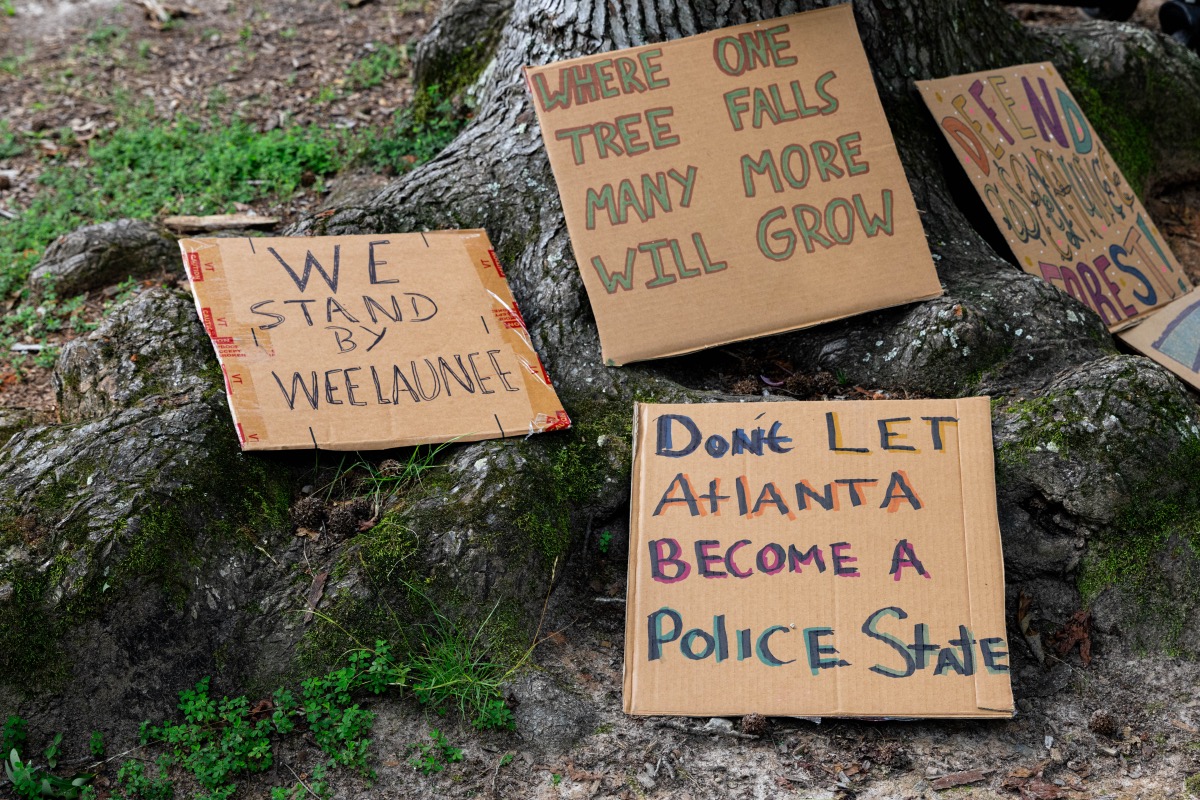

Carlos Edill Berríos Polanco/Latino Rebels
In what’s being hailed as a major victory for those looking to halt construction of a police training facility in a forest near Atlanta, a federal judge in Georgia ruled Thursday that a ban on non-Atlanta residents collecting signatures for a potential ballot measure is unconstitutional. The “Stop Cop City” movement now has 60 additional days to gather the signatures required to place the planned facility on the ballot in Georgia’s municipal elections this November.
Before the ruling, only Atlanta residents were able to collect signatures, even though the Atlanta Public Safety Training Center —known as “Cop City” by those who oppose it— would sit outside Atlanta city limits in unincorporated DeKalb County, on land owned by the city.
“Requiring signature gatherers to be residents of the City imposes a severe burden on core political speech and does little to protect the City’s interest in self-governance,” wrote Judge Mark H. Cohen of the U.S. District Court for the Northern District of Georgia in his ruling.
Judge Cohen said the 60-day time limit for collecting signatures, which would have put the deadline in mid-August, should be restarted. Organizers will now have until late September to gather the 58,000 signatures needed to place the referendum on the ballot in November, when Georgia is set to hold its municipal elections.
Organizers said they had gathered over 30,000 signatures before the judge’s ruling was announced, 23,000 of those signatures gathered by volunteers while the rest were gathered by a paid canvassing effort. The city is required to count all valid signatures already collected.
Activists are hoping to reach at least 70,000 signatures as a buffer.
“Since day one, the residency restriction has limited my ability to go out and talk with my neighbors. With this ban lifted, we are ready to win,” said Lisa Baker, another plaintiff.


Carlos Edill Berríos Polanco/Latino Rebels
“Today, a very clear message was sent to Mayor Andre Dickens and all opposing direct democracy that their attempts to suppress free speech are not welcome in Georgia,” said Rev. Keyanna Jones, a member of the movement’s faith coalition and one of the four DeKalb plaintiffs represented in the lawsuit.
Cop City has been a point of contention for Atlantans for nearly three years now. Activists have opposed the facility —which they say will only lead to a more militarized police force to quell social movements— since official plans for the site were first announced in 2021.
The project is set to be built in the South River Forest, one of Atlanta’s four major “lungs,” destroying at least 85 acres of forestland in a predominantly Black area of DeKalb County.
Since June, Stop Cop City organizers have been pushing for a referendum that would put the City of Atlanta’s lease agreement with the Atlanta Police Foundation up for a binding vote in November’s municipal election. Rejection of the lease by voters would essentially kill the project, which is already in the pre-construction phase.
Activists have characterized the referendum as a fight to protect democracy against the efforts of disenfranchisement that they say is the prime impetus behind the building of Cop City in the first place.
Meanwhile, Atlanta Mayor Andre Dickens, a Democrat, has already questioned the legitimacy of the campaign by saying it would be “unsuccessful, if it’s done honestly,” in a July 5 news conference. Likewise, a July 17 court filing characterized the petition as “futile” and “invalid” because the lease with the Atlanta Police Foundation cannot be retroactively repealed.
Although they now have an extended deadline, activists are still attempting to get the necessary signatures by August 14 to secure a vote on the November ballot. A later date risks seeing the measure pushed onto the ballot next March, when Georgians are set to vote in the 2024 primaries, which some activists worry would give the city more time to proceed with the construction of Cop City. Should that be the case, activists say they would seek an injunction to halt construction.


Carlos Edill Berríos Polanco/Latino Rebels
Officials are reviewing the judge’s decision, a spokesperson for Dickens told the Associated Press.
“The choice is simple,” the spokesperson said in a statement. “We can either have the best-trained firefighters and police officers or we can decide to settle for sub-par training conditions in sub-par facilities.”
Atlanta officials have been trying to stop the referendum effort, activists say, who view the effort as part of a general repression of the Stop Cop City movement. The referendum effort began the day after the Atlanta City Council voted 11-4 to approve a new budget for Cop City after an “unprecedented” 14 hours of public comment, where a vast majority of participants opposed the facility.
The city council had approved Cop City after another “unprecedented” 17 hours of public comment back in 2021.
Dozens of forest defenders have been charged with domestic terrorism for their association with the movement. A number of other activists have been arrested, including at least three during the movement’s sixth week of action in late June.
In January one activist, Manuel “Tortuguita” Esteban Paez Terán, was shot 57 times by Georgia State Patrol officers during a raid of an encampment set up by activists in the South River Forest, in what some activists characterize as an “execution by firing squad.”
“People need to have a voice, and we’ve done everything that we could do, from direct action to public comment to the elections and trying to elect people who are aligned,” said Britney Whaley, a leader organizer for the coalition and the southeast regional director of the Working Families Party. “Really it shouldn’t be this hard to have our leadership hear us.”
***
Carlos Edill Berríos Polanco is the Caribbean correspondent for Latino Rebels, based in San Juan, Puerto Rico. Twitter: @Vaquero2XL


